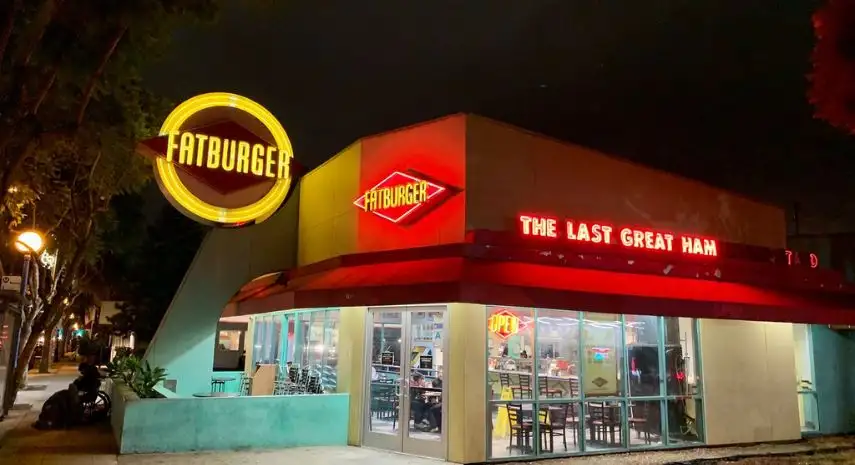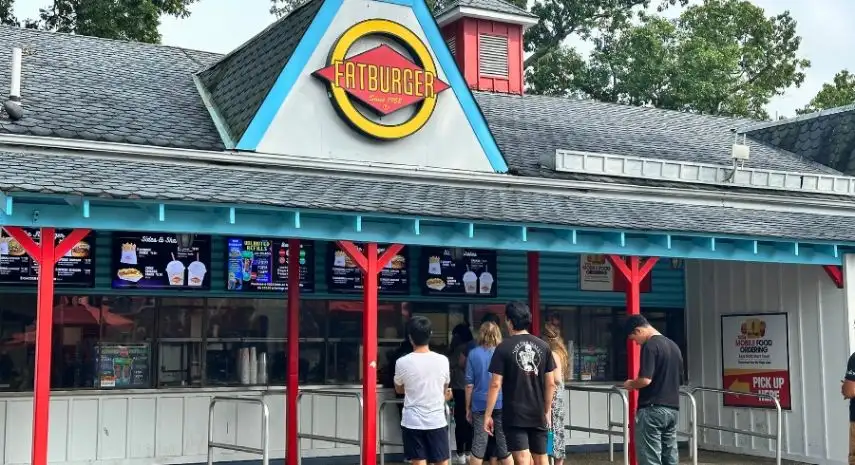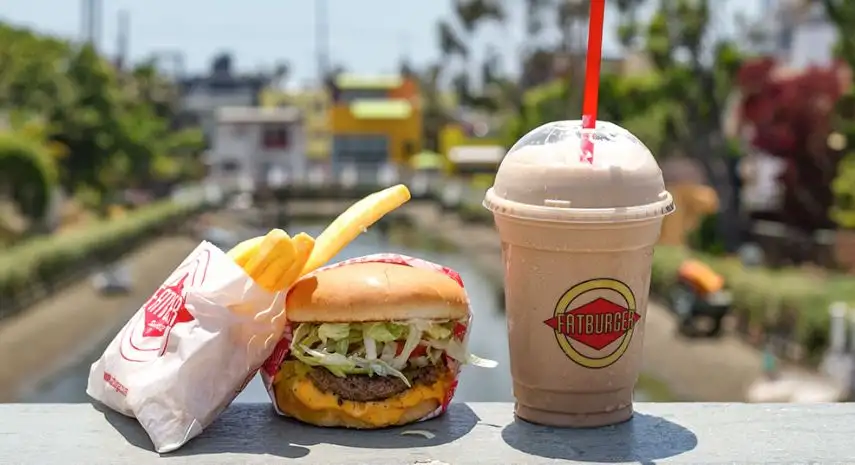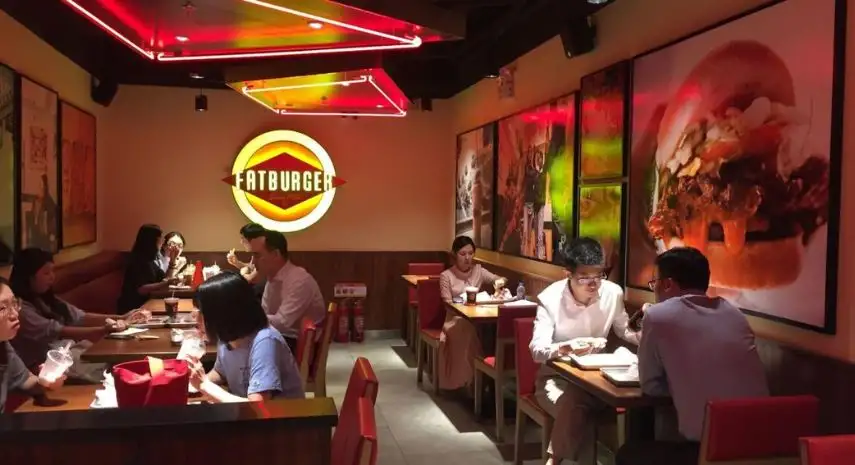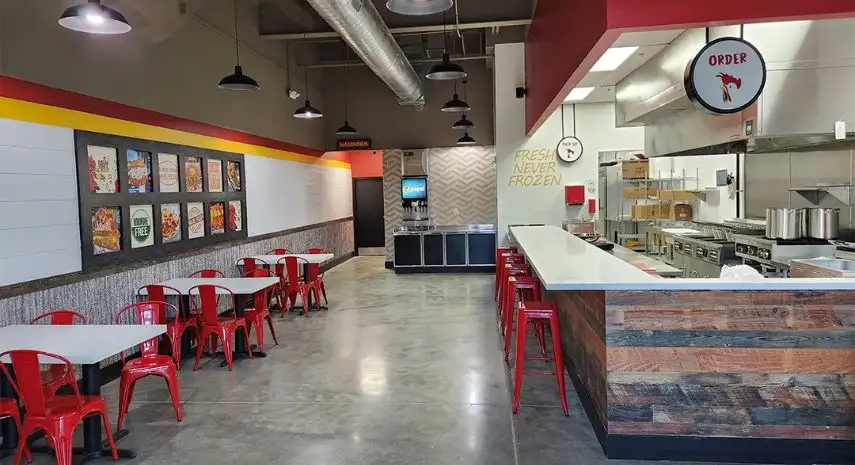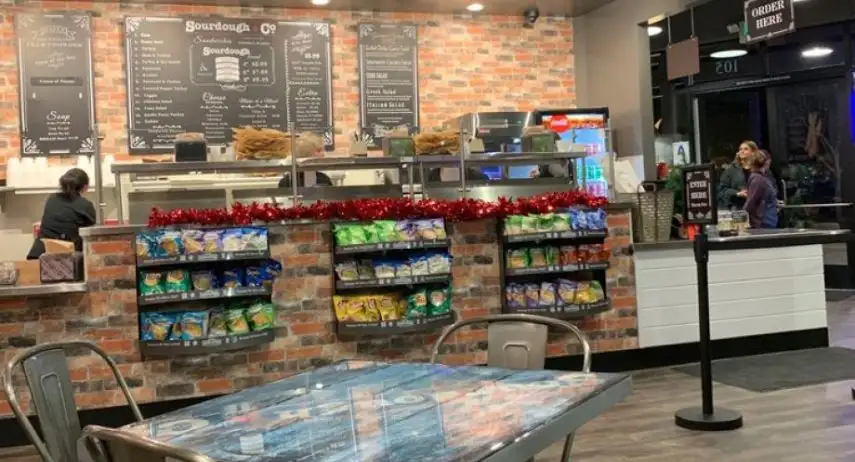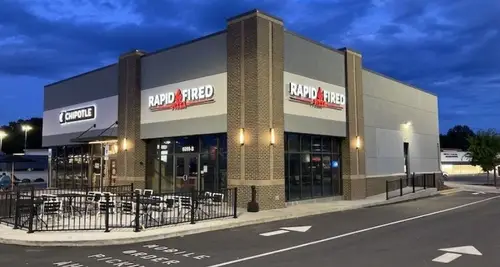Established
1947
Franchise Units
200
Minimum Investment
$500,000
Franchise Fee
$50,000
Total Investment Range
$1,500,000
Home Based
No
Description
Fatburger is more than just another burger chain—it’s an American icon built on a legacy of flavor, quality, and authenticity. Since opening its doors in Los Angeles in 1947, Fatburger has become synonymous with made-to-order gourmet burgers crafted with fresh ingredients and cooked to perfection. Known for its juicy patties, thick milkshakes, crispy fries, and welcoming diner-style atmosphere, Fatburger has earned a loyal following and a powerful reputation in the competitive fast-casual burger segment.
With over 200 locations across North America and a growing international footprint, Fatburger stands as a proven and enduring franchise opportunity for investors who want to be part of a time-tested, globally recognized brand. The brand’s unwavering commitment to quality, operational consistency, and innovation has helped it remain relevant in a rapidly evolving quick-service restaurant (QSR) landscape.
Fatburger’s success lies in its blend of classic Americana charm and modern franchise systems—offering franchisees a scalable model, robust training, and a strong return on investment backed by the demand for premium burgers made fresh, not fast.
Why Invest in the Fatburger Franchise?
Investing in a Fatburger franchise means joining a powerhouse brand that represents decades of operational excellence and consumer trust. The franchise offers a rare combination of nostalgia and innovation—bridging the traditional diner experience with modern efficiency and technology-driven systems.
Key reasons to invest include:
-
Proven Legacy: Over 75 years of brand recognition and operational success.
-
Global Presence: A thriving footprint across North America, Asia, the Middle East, and beyond.
-
Premium Positioning: Differentiated from typical fast-food brands through quality, customization, and freshness.
-
Strong Franchise Support: Comprehensive training, site selection, marketing, and operational guidance from experienced corporate teams.
-
Scalable Formats: Flexible store models—from dine-in restaurants to smaller express or non-traditional units suited for airports, malls, and campuses.
Background
Fatburger was founded in 1947 by Lovie Yancey in Los Angeles, California. What started as a small burger stand—originally called “Mr. Fatburger”—quickly became a local legend for its handmade patties, cooked-to-order meals, and warm hospitality.
Over time, Fatburger’s reputation spread far beyond California, attracting celebrities, athletes, and everyday burger lovers alike. The brand grew steadily through franchising, with its first franchise unit opening in the 1990s. Today, Fatburger operates under the FAT Brands Inc. portfolio, alongside other major names like Buffalo’s Café, Johnny Rockets, and Elevation Burger.
Currently, Fatburger has over 200 franchise units worldwide, with a significant presence across the United States, Canada, and international markets in Asia and the Middle East. The brand is part of the fast-casual restaurant industry and continues to dominate its niche through premium ingredients, hand-crafted recipes, and a focus on quality over speed.
Support Training
Fatburger’s franchise support is designed to empower owners with everything needed to run a successful business—whether you’re a seasoned restaurateur or new to franchising.
Pre-Launch Support:
-
Site Selection & Lease Assistance: The corporate team helps identify ideal locations based on traffic patterns, demographics, and market trends.
-
Restaurant Design & Construction: Complete architectural and interior design support, ensuring compliance with brand standards.
-
Operational Setup: Assistance with vendor sourcing, equipment procurement, and pre-opening inventory planning.
Comprehensive Training:
-
Initial Franchise Training: A multi-week program covering food preparation, customer service, operations, and staff management.
-
On-Site Training: Corporate trainers provide hands-on guidance during the opening phase to ensure smooth operations.
Ongoing Support:
-
Marketing & Advertising: National and local marketing campaigns, social media promotion, and PR support.
-
Operational Guidance: Continuous field support, business reviews, and updates on menu innovations.
-
Technology Integration: POS systems, supply chain management tools, and data analytics to optimize performance.
Fatburger ensures every franchisee is equipped with the knowledge, systems, and tools necessary to deliver the same world-class dining experience customers expect from the brand.
Ideal Candidate
Fatburger’s ideal franchisee is more than just an investor—they’re an operator who believes in the value of quality, consistency, and guest experience. The brand looks for individuals who share its passion for serving premium, made-to-order burgers while maintaining the integrity of a beloved American icon.
Here’s what makes an ideal Fatburger franchise partner:
1. Passion for Food & Hospitality
Successful Fatburger franchisees are driven by a genuine love for great food and exceptional service. They understand that Fatburger isn’t just selling burgers—it’s delivering a classic American dining experience built on quality and care. Franchisees should enjoy connecting with guests, motivating teams, and creating a welcoming atmosphere that keeps customers coming back.
2. Entrepreneurial Spirit
The Fatburger system thrives on proactive, business-minded entrepreneurs who can lead, adapt, and grow. Ideal candidates have a strategic mindset, the ability to manage operations efficiently, and a willingness to follow proven systems while also thinking innovatively to meet local market demands.
3. Operational or Restaurant Experience
While prior restaurant experience is not mandatory, it is highly recommended. Candidates with a background in food service, QSR, hospitality, or retail management tend to transition smoothly into the Fatburger system. Multi-unit restaurant operators or franchise owners looking to diversify their portfolio are also an excellent fit.
4. Strong Leadership & People Skills
Fatburger franchisees should be natural leaders who can hire, train, and inspire a team to deliver consistent results. Strong communication, team-building, and problem-solving skills are essential to maintaining the brand’s high standards of service and operations.
5. Financial Capability
To ensure long-term success, Fatburger seeks financially qualified franchisees who can manage startup and operational costs comfortably.
-
Minimum Liquid Capital: $150,000 – $250,000
-
Net Worth Requirement: $500,000+
-
Ability to secure financing for build-out, equipment, and working capital
6. Commitment to Brand Values
Franchisees must align with Fatburger’s core principles of quality, authenticity, and community engagement. They should take pride in maintaining the brand’s identity—fresh ingredients, cooked-to-order meals, and customer-first culture—while being active ambassadors in their local market.
7. Local Market Knowledge
Ideal candidates understand their local demographics and can identify high-traffic, high-visibility locations suitable for Fatburger’s growth. Community involvement and local partnerships are key to building brand loyalty and driving repeat business.
8. Growth-Oriented Mindset
Fatburger’s flexible franchise formats—ranging from traditional dine-in restaurants to express and non-traditional units—make it ideal for multi-unit expansion. Entrepreneurs who plan to grow regionally or develop multiple territories are encouraged to apply.
Financial Detail
Below is a detailed financial overview of what it typically costs to own and operate a Fatburger franchise in the United States. These numbers are based on estimates provided by industry data and franchise disclosures and may vary depending on location, restaurant size, and market conditions.
| Expense Category | Low Estimate (USD) | High Estimate (USD) | Description |
|---|---|---|---|
| Initial Franchise Fee | $50,000 | $50,000 | One-time fee granting franchise rights and brand access. |
| Leasehold Improvements | $150,000 | $600,000 | Includes build-out, construction, and renovations to meet Fatburger’s design standards. |
| Restaurant Equipment & Fixtures | $100,000 | $250,000 | Kitchen equipment, grills, fryers, refrigeration, POS systems, and seating. |
| Initial Inventory | $10,000 | $25,000 | Opening stock of food, beverages, packaging, and supplies. |
| Signage & Branding | $8,000 | $20,000 | Interior and exterior signage, digital displays, and brand elements. |
| Technology & POS Systems | $10,000 | $25,000 | Point-of-sale software, hardware, and digital management tools. |
| Training & Pre-Opening Expenses | $15,000 | $35,000 | Franchisee and staff training, travel, and corporate onboarding. |
| Grand Opening Marketing | $10,000 | $20,000 | Local marketing, promotions, and launch campaigns to drive awareness. |
| Professional Fees (Legal/Permits) | $5,000 | $15,000 | Licenses, permits, professional consultations, and legal documentation. |
| Working Capital (3 Months) | $50,000 | $100,000 | Cash flow to cover payroll, utilities, and operating costs during initial months. |
| Miscellaneous Costs | $5,000 | $10,000 | Unexpected costs or additional small business setup expenses. |
| Total Estimated Investment | $500,000 | $1,500,000 | Typical range for opening a Fatburger franchise in the USA. |
Ongoing Fees & Financial Obligations
| Type of Fee | Amount / Percentage | Notes |
|---|---|---|
| Royalty Fee | 6% of Gross Sales | Paid weekly to FAT Brands Inc. |
| Marketing/Ad Fund Fee | 2% of Gross Sales | Contributes to national and regional marketing efforts. |
| Renewal Fee | 50% of Current Franchise Fee | Payable upon agreement renewal. |
| Technology & Support Fee | Variable (approx. $200–$500/month) | Covers POS, software, and tech updates. |
| Franchise Term | 10 Years | Renewable based on performance and compliance. |
Financial Performance Highlights (Estimates)
| Performance Metric | Typical Range | Notes |
|---|---|---|
| Average Unit Size | 1,200 – 2,000 sq. ft. | Suited for high-traffic locations, malls, and urban areas. |
| Break-Even Period | 18 – 30 months | Depending on location, rent, and management efficiency. |
| Average Annual Revenue | $1.0M – $2.5M | Varies by region and store size. |
| Expected ROI Period | 3 – 5 years | Based on consistent performance and sales volume. |
| Profit Margin (After Royalties) | 10% – 20% | Depending on operational efficiency and cost management. |
Revenue Streams
Fatburger franchisees can generate income from multiple channels:
-
Dine-in and Takeout Sales – Core business model with strong consumer demand.
-
Online Delivery Platforms – Integrated with Uber Eats, DoorDash, Grubhub, etc.
-
Catering and Events – Profitable segment for local and corporate orders.
-
Branded Merchandise – Apparel and collectibles to strengthen local brand identity.

